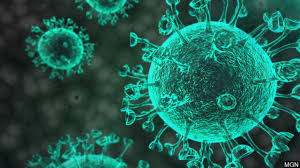(单词翻译:单击)
中英文本
As new findings, even weak or conditional ones, are publicized that contradict earlier findings, those of us trying to follow along can end up frustrated and confused. But while frustration and confusion among the science-minded might be unfortunate, it's not deadly. What really worries me is that those skeptical of science might see the apparent flip-flops as reason to turn against evidence-based advice altogether.
当公开发表的新发现(即使证据不足或有附带条件)与先前的发现相互矛盾时,试图跟上进度的我们最终可能会感到挫折而困惑。有科学头脑的人感到挫折与困惑或许让人不太开心,但并不致命。真正令我担忧的是那些怀疑科学的人,他们或许会把这些看似反复的信息当成理由,反对所有基于科学实证的建议。
Maybe, in a weird way, watching scientists try to build a plane while they're flying it -- as some have described coronavirus research -- will be good for our overall understanding of the scientific process. Maybe the pandemic will persuade even the skeptics how crucial scientific discovery is to human flourishing.
说来奇怪,但或许看着科学家试图一边开飞机一边造飞机--正如某些人所描述的新冠病毒研究现状--有助于我们对科学过程的整体了解。这场全球大流行或许甚至能让怀疑论者相信,科学发现对人类的繁盛有多重要。

That's the hope of Lin Andrews, director of teacher support at the National Center for Science Education. "People innately trust scientists overall, but when it's a polarized topic, things can go wonky," said Andrews, a former high school biology teacher. She and 10 colleagues, seeing the pandemic as a teachable moment, have devised a five-part lesson plan, good for classroom or home use depending on whether particular school districts are open. It focuses on epidemiology as a way to educate high school students -- and, by extension, their parents -- about what the scientific process entails.
这正是美国国家科学教育中心的教师支持主任林·安德鲁斯的希望。曾经担任高中生物老师的安德鲁斯说:“人们一般而言会本能地信任科学家,但若遇上两极化的议题,就可能会出岔子。”她和十名同事视这场大流行为一个教育机会,设计出分成五个部分的课程计划,在教室和家里都可以操作,视校区是否开放而定。该计划以流行病学为重点,教导高中生及他们的家长了解何谓科学过程。
The course shows how scientists construct their theories, Andrews said, by emphasizing "all these stumbles that were made along the way." It includes milestones in epidemiology, such as when British scientist John Snow traced the London cholera outbreak of 1854 to contaminated drinking water. No one believed Snow -- the prevailing theory was that cholera was spread through the air in a contagious "miasma" -- until he had the handle removed from the water pump on Broad Street, shutting off the contaminated water supply and stopping the outbreak.
安德鲁斯表示,这个课程通过强调“一路上遭遇的种种挫折,”介绍科学家如何建构他们的理论。它包含流行病学的里程碑,例如英国科学家约翰·斯诺追查到伦敦在1854年爆发的霍乱源头是受污染的饮用水。当时没有人相信他--主流理论认为,霍乱是通过一种具传染性的“瘴气”在空气中传播--直到他将布罗德大街上的水泵把手拆除、切断污染水源的供给并终止霍乱疫情后才改观。
重点讲解
1.turn against 反对
And, if people turn against them at the polls, they will never let go.
而且,若民众通过选举反对其统治,他们也决不交权。
2.shut off 切断
Pope orders the water shut off inside the prison.
狱长下令将监狱内供水切断。


